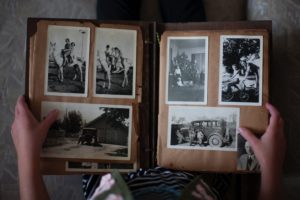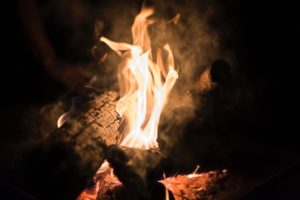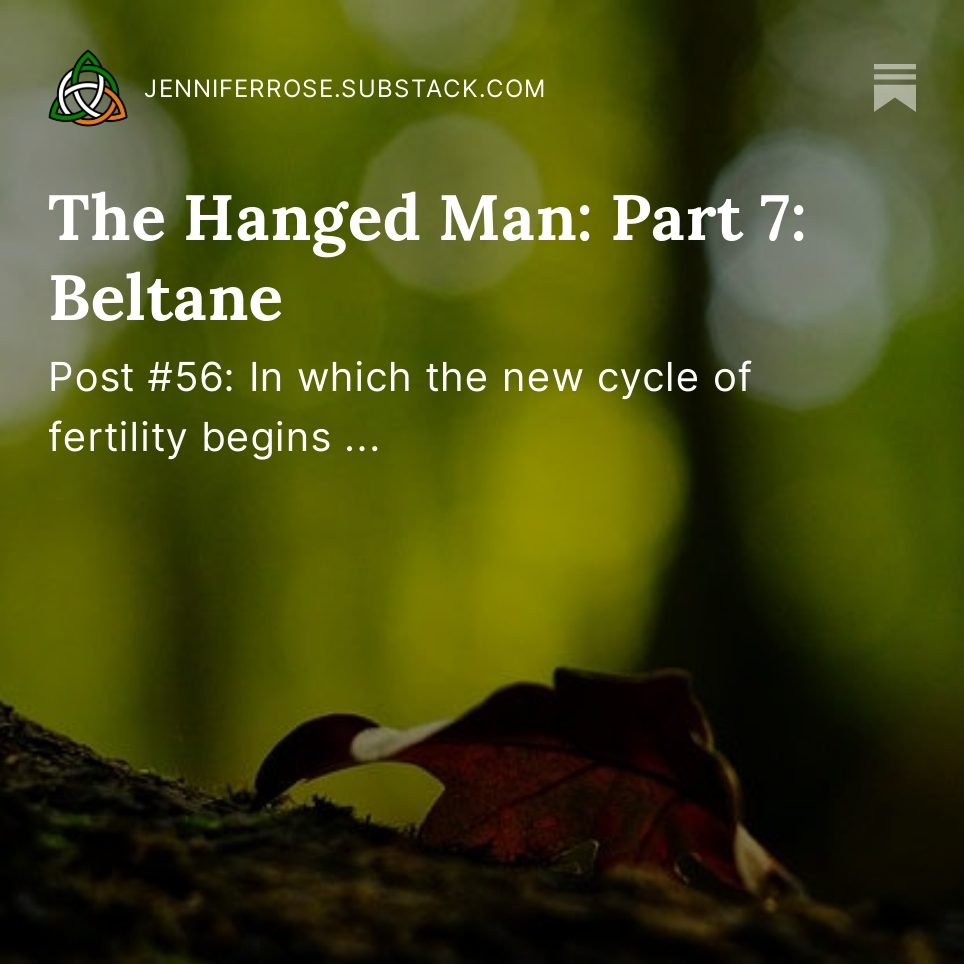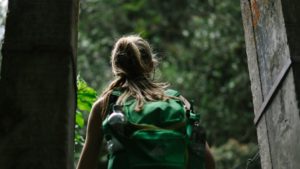by Jenny Rose | Apr 29, 2023 | A Flourishing Woman, The Journey
I have returned from ten days in Colorado during which my brother and I prepared for and hosted a living estate sale. Together, we emptied, polished and cleaned my mother’s house. Thankfully, she herself was oblivious, as she is in memory care with a hospice team supporting her.

Photo by Michal Balog on Unsplash
We were successful in our goals, which were to spend time with Mom, hold the sale, and ready the house for renters, who are moving in as I write this.
It doesn’t feel like success, though. Since I arrived back home to Maine, I’ve been groping for what it does feel like, but I couldn’t come up with a clear answer until this morning.
It feels like loss. It feels like a hundred small losses.
Until I came to Maine, Mom and I lived in a small town at the foot of the Spanish Peaks in Southern Colorado. The town lies in a green (sometimes) valley nestled below the Trinchera Mountain Range and the peaks, and something about its geography brings harsh, dry winds that scour the landscape for days, filling the dry air with bits of desiccated landscape. The wind is relentless, without mercy, inescapable.
It was windy for the first several days we were there, and I feel as though I have been staked in the teeth of that wind, like a plastic bag caught on a barbed wire fence, whipped and shredded into ribbons.
I hadn’t realized before that cleaning out an old person’s house is never about just that person. Mom, as the oldest remaining family member, kept papers and pictures regarding known and unknown ancestors, fragments of hidden family stories. She had her mother’s antique armoire, filled with crystal stemware, silver, and china with gold accents. Cupboards and drawers housed ornaments, cut-glass dishes, and jewelry that belonged to my maternal grandmother. Cross stitch, embroidery, and needlepoint done by that same grandmother and my younger self hung on walls throughout the house. She held onto papers and records from my adopted father, deceased for many years. Mom still had his good parka and a pair of his almost unworn boots in her coat closet.
We recycled and shredded pounds of paper, filled and tied countless bags of trash. I packed boxes and baskets and plastic storage containers with bathroom products, cleaning products, dishes, silver, kitchen stuff. I put inexpensive jewelry on a tarnished silver tray for the sale. We used up all the old newspaper for wrapping and I put out an SOS for more, which speedily arrived. I packed boxes to ship home to myself of the few mementos I wanted and took them to the post office, one by one.
All these bits and pieces of lives, of family. A collection of nail clippers and tweezers, from rusty and stiff to new. Hundreds of greeting cards for every occasion. Old letters, report cards, school papers. Boxes and albums full of photos.

Photo by Laura Fuhrman on Unsplash
In the laundry room, I sorted through products for cleaning, polishing, waxing, staining. I found three open bottles of lemon oil for wood, sticky and congealed. I discarded old sponges, rags, scrub brushes and a broken Swiffer.
I moved Mom into that house. I painted the front and garage doors. I painted the trim around the new windows. I painted the walls in the sun room and hallway.
I felt engulfed by the past, a past I prefer not to dwell on, a past I would like to let rest in peace.
But the wind caught me, pinned me against the thorns and spines of the high desert, and had its way with me.
Is home the place that glues us together? Perhaps. Perhaps that’s why I feel unglued, fragmented, as though I have left pieces of myself in my wake for the last couple of weeks. I inadvertently left a book I was reading on a bench while waiting to meet my brother at Denver International Airport the night I arrived. It was a good book, too. Part of me still sits on that uncomfortable bench, reading, watching reunions, waiting out the slow minutes until the tall form of my brother rises into view on the escalator.
We found pieces of ourselves in that house, my brother and I. I wondered if I looked as lined and shadowed as he did. I wondered if I looked as frayed and torn as I felt. My mother’s fleshless face, fragile skin, and bewildered eyes clawed at my heart.
Part of me is on each of the two planes that carried me across the country, wedged in among strangers, my bag between my feet, my backpack between my knees, while I read and dozed and tried not to think about how uncomfortable I was, tucking my elbows in tightly so as not to intrude upon my neighbors.
Part of me sits at various disheveled, grubby, airport café tables, anonymous, utilitarian, with the hard-used look of all airport eating establishments where the high-priced food tastes of weary miles.
I cried in the shower at Mom’s house, letting the water wash my tears, my hair, my skin cells down the drain and into the wastewater system of my old town.
I found pieces of myself in the faces of my friends, in an outdoor hot tub at dawn with a dear one, in a dance with some of my old dance group, all the more poignant because of the absence of others. I filled my eyes with the majestic Spanish Peaks, looming over the valley. They anchored my life for years.
I found pieces of myself, too, on the dusty interstate highway I traveled hundreds of times during my years in that place. The pronghorn antelope, the giant wind turbines, the miles of yucca, cholla cactus and tumbleweed. The familiar place names and exits. Surely some part of me will eternally drive north and then south along those miles, some ghost, some echo.
Part of me is still standing in the 6:00 a.m. hour-long line for TSA at Denver International, shuffling forward a few feet at a time, surrounded by hundreds of other people, early-morning faces creased, crumpled, yawning, and resigned. Mothers with children. Families. Couples. Young people. Old people. Businesspeople.

By David Edkins on Unsplash
I deliberately left a book on the bus that brought me from Boston Logan Airport to Augusta, Maine. I was finished with it and I didn’t want to carry it any more. Perhaps it will be a happy find for some other traveler who will sit where I did, taking their own journey, and their hands will turn the pages I touched, their eyes travel down the printed lines.
I said hello, and then I said good-bye again, not knowing if it was a final good-bye. Hello and good-bye to the memory of the good man who was my adopted father. Hello and good-bye to my mother’s parents and their parents and theirs. Hello and good-bye to my brother. Hello and good-bye to my oldest son, now living in Denver. Hello and good-bye to my friends, to Mom’s friends, to the dusty dirt roads, to the two houses I lived in during my years in that town, to my memories, to the community, the places I shopped, the places I ate, the places I danced and worked and told stories and hiked.
Hello and good-bye to Mom and the caregivers I met and conferenced with.
So many good-byes. Too many good-byes.
And then hello. Hello to my partner. Hello to the initially disbelieving cats, who still zoom around in excitement and welcome days later. Hello to my comfortable bed, my serene room, my kitchen, my giant-sized tea mug, my laptop, my little bathroom, my electric toothbrush.
Yesterday I went out to sit on the porch and read. It was beautiful in the sun; the garden full of exuberant new life. I put my book down and weeded, discovered bulbs coming up, and planted peony roots. Those hours were the first feeling of coming home to myself.
I’ve come home to the simple rhythm of swimming, to the warm, humid, familiar routine of my job in a rehab pool facility. I’ve come home to the keyboard and the page.
I went to the store this morning. I had a list. I drifted up and down the aisles, putting a few things in the cart. I set a book I was finished with on the donation table. It was as though I walked through the little mom-and-pop store in my old place in Colorado and the Safeway in a nearby larger town at the same time. I felt confused. I walked in a dream. I forgot where things were. I couldn’t focus. I left with a small bag of groceries I didn’t feel like I really needed or could use. I came home, made a cup of chai, and used up the milk. I knew I needed more and remembered while I was shopping, but I didn’t buy any …
Too soon to shop. Too soon. I’m not all here yet. The pieces I left behind are still caught in the wind of my passing. I feel as threadbare as Mom’s memory. I wonder if all those pieces will find me again or if the wind has carried them away forever. Do I want all the pieces? Did they slough away because I no longer need them? I can’t tell. I don’t know.
Two things are clear to me. The first is something I read and wrote about somewhere on this blog. The greatest thing we can do to honor those who came before us is to live our lives fully. Grieving fully does not mean living in grief forever. Living fully means living now, not in the past. Living now cannot be accomplished with clutching hands and a clenched heart. Now is not then, nor is it a future that never arrives. Now is now: the sleeping cats, the creamy pink flowers on the magnolia outside the window, the sound of the birds at the feeders, sunlight on the neighbor’s house.
The second is that none of us can live in two places. I transplanted myself to Maine years ago, and have no regrets. My roots are watered here. I belong here. It’s my place now. We need each other. For this day, I will choose to believe all the pieces of myself I need will find me again, will gradually come home to me. The rest I will simply let go, as I’ve let so many things go during the last days and years.
Questions:
- Have you ever been responsible for sorting through a loved one’s possessions and wrapping up their life? What was the hardest part for you?
- What’s the best support you’ve received during a process like this?
- How have you supported others who have needed to manage a loved one’s estate?
- Have you ever felt so emotionally exhausted you couldn’t function? What helped?
Leave a comment below!
To read my fiction, serially published free every week, go here: 
by Jenny Rose | Apr 8, 2023 | A Flourishing Woman, The Journey
Delayed closure is a wound treatment strategy in which complex wounds with extensive soft tissue damage and high levels of possible contaminants are treated with initial control of bleeding, cleaning, and debridement, and then left open for a period of time during which the possibility of infection is treated proactively. At the time of delayed wound closure, further debridement of scar tissue or dead tissue takes place.
As I count down the days and prepare for my second trip out to Colorado this year to manage my mother’s recent admission to memory and hospice care, the phrase ‘delayed closure’ reverberates through my mind.

Photo by Ryan Moreno on Unsplash
Delayed closure.
I have recognized for some weeks the significance of this second return to the place I called home for more than 20 years and my frail, confused, aging mother. At least, I have begun to recognize the significance. Every day brings added clarity. Awe is not too strong a word for what I feel.
When we flee people, places, or situations (and my flight from Colorado to Maine eight years ago was all three), it’s not an elegant, dignified process. It’s a frantic life-or-death flailing and thrashing, a single-minded determination to survive, whatever it takes.
The process leaves wreckage behind, a lot of unfinished business, a lot of rending and tearing, misunderstanding and hurt. It leaves, in other words, a complex psychic wound, not a clean laceration.
When I found myself in Maine, I thought I would not survive the trauma. I had torn myself up by the roots and gone to ground in a strange place I’d never been before. I felt like skin and hair wrapped around a suppurating wound of such longstanding duration and composed of so many different kinds of damage it didn’t seem possible it would ever heal. I didn’t think of healing. I didn’t hope for healing. I was a feral creature in survival mode.
I had no idea I had in fact saved my own life and taken the first steps to transformation, and I wouldn’t have cared if I’d known.
All I was doing was surviving.
In medical care, part of the strategy of delayed wound closure is giving the body’s natural defenses a chance to overcome infectious bacteria rather than sealing them in.
What were my natural defenses?

Photo by Aaron Burden on Unsplash
Water. My home in Colorado had been enduring a years-long drought. The wind blew all the time. Gaunt, dusty cattle stood sunken-eyed on plots of hard-baked ground. The wind blew relentlessly, scouring the land with flying sand, dust, and debris. We prayed for rain as we hauled grey water to our gardens. The city imposed restrictions on outside watering, car washing, any outside fires. Trees died. Fires consumed the land. It was apocalyptic, a hellscape with no relief in sight. Our water bills went up and up for simple household use. The rain didn’t come, year after year.
Maine was a revelation. Water. Big water, like I’d never seen before. The Kennebec River. Puddles everywhere, each with a duck. The people here call an enormous lake (to my eyes) a pond. Huge trees. Hip-high ferns. Moss.
Moss!
Rain. It rained. It actually rained. Measurable rain falling for hours, sweet, cool, life-giving. Mist. Fog. To breathe was to absorb water like a desiccated sponge. My cracked skin healed, drinking in the moisture. I lived in a house with a hand-dug well. No water bill. Free water! I trained myself to flush the toilet every time! My hair curled, growing out rather than down.
I lived in the country in Maine. No one knew me. No one knew I existed or any member of my family. For the first time in my life I escaped everyone’s expectations. No one demanded anything from me. No one watched me with critical eyes. No one told stories about me. I had no reputation. I was free, untethered from everyone and everything. I could think my thoughts and feel my feelings in safety and privacy. I could read, or work, or sleep, or take a walk, or garden without interruption or someone telling me I was failing. No one demanded anything from me. I had no emotional labor to do. I rested in the healing solitude of nature, laying my hands on trees, sitting on rocks watching little spring streams trickle, sitting in the sun listening to the birds, lying in bed listening to the owls, coyotes, and spring peepers in the pond.
Writing. In 2016, a year after I arrived, I began this blog. I had no expectations. My sole intent was to write my truths in my own uncensored voice without trying to please anyone, in spite of my fear. I had done some writing in Colorado, but always with a sense of guilt and shame, always with the fear of what others would think. I knew everything I wanted to write would be looked upon as unforgiveable betrayal or wildly shameful.

Photo by Angelina Litvin on Unsplash
In Maine, so far away in a new life, I discovered my courage and started, week by week, recording my journey from a broken, cringing creature, filled with self-loathing, to a strong, confident woman. At the same time, I pulled together my scrawled notes and the stories I’d written in the dim, hidden edges of my life and finished a book. Then I started another one. Then I finished the second book and started a third one.
These were my natural defenses: water, nature, and writing. Slowly they overcame the infection in my ravaged soul.
Yet the wound did not close. It stopped stinking and bleeding. Scar tissue formed. But I had lost too much to pull the edges together and make a neat closure. I had saved my life. I had survived and gone on to thrive. But I knew I was not done.
I know an old story about amends; it says only the hand that dealt the wound can heal it. Sometimes we must flee in order to live to fight another day. I fled, and I was right to do so, but flight leaves no time for closure. For closure sometimes we must go back.
Delayed closure.
The first time, in January, I was afraid to return. Afraid of judgement. Afraid of old pain. Afraid of what others would think, or say. I was afraid to have my memories stirred up. I was afraid my wound would tear open again, and this time I would not survive.
What happened instead was acceptance and love in the arms of old friends. My love for them was met by their love for me. The place, dear and familiar, welcomed me, though I no longer call it home. I found changes, of course, but not painful changes. Natural changes. I realized my fear had kept me from the closure I need, and my fear, once faced, amounted to nothing. In reclaiming my power, I was able to gain perspective. I’m just a part of that little town in the way it’s a part of me. I’m not the most important part of it and never was. It’s not the most important part of me and never was.
Having reclaimed my power, I felt and expressed my honest love and affection for the place and the people without needing anything in return, although I received much in return with gratitude and, I hope, grace. I examined the wound again, debriding scar tissue, cutting away necrosis, until my soul was healthy and vital once more. Some lines. A few silver scars. But free of infection, free of pain.
Still, when I came home to Maine again, I knew I was still not finished. Closure was not complete. I knew one day I would return once more to the place I had left.
In less than a week I’ll be there again, this time for a longer period. We must prepare for and hold a living estate sale: clean, sort, sell, discard, donate, and perhaps store a house full of, not my mother’s life, but her stuff. The things from which she constructed her identity. We must see to repairs and the business of welcoming renters in.
We will also visit my mother in memory care. If she’s well enough, we’ll take her out for a meal or a little gentle shopping. Perhaps we can sit in the sun with her. Or, perhaps she’ll be angry and bitter, refuse to sit in her wheelchair, demand to go buy a car, or some other wildly inappropriate and impossible thing.
I will see her again, though, speak to her, tell her I love her. I’ll check to be sure she has everything she needs. I’ll speak to the staff, to her hospice team. I’ll buy some books for her from the Friends of the Library bookstore she herself created and helped run for years. If she can’t go out, we’ll bring food in, perhaps a flower in a vase, and sit in the dining room where other residents can see her with her family, give her the dignity of being loved and cared for rather than forgotten and discarded.
It will be hard, or it will be easy, or it will be both. Dementia is like that. However it is, though, I won’t take anything to heart. Her power to hurt me has unraveled, along with her memory and cognition. She’s physically safe at last. Her physical and emotional wellbeing are no longer my responsibility. They never were, of course, but I didn’t believe that until recently.

Photo by Jeremy Bishop on Unsplash
I’m free. Free of my painful memories, free of old stories and narratives, free of the fear of what people will think of me. Free of fear, most of all. Freedom fills in that old wound and now, at last, I can pull the edges together, stitch them with words, with love, with wisdom, with forgiveness of her and myself. I have traveled a long, long road through darkness, despair, self-hatred, and trauma, but I still love. I still care. I still dance, and laugh, and write, and thrive. I still belong to Life.
I did the very best I could every step of that journey. I was blessed with guidance and friends and teachers. My wounds were not mortal.
Now, journey’s end. Delayed closure. New beginnings.
Questions:
- What is your experience of going to a place you called home after a long absence?
- What open wounds do you still have?
- How have you closed longstanding wounds?
- Do you see a living estate sale as a cruel betrayal or an appropriate business choice?
Leave a comment below!
To read my fiction, serially published free every week, go here: 
by Jenny Rose | Mar 11, 2023 | Emotional Intelligence, Feelings
In January, my brother and I traveled to Colorado to transition our mother into memory care.
As some of you know and many can imagine, a journey into dementia is an unsettling one on good days, by which I mean relatively calm days. On bad days, days of panic and confusion, days of anger and restlessness, it’s heartbreaking.
One of the greatest challenges for me is the chaos of my jostling feelings, all mobbed together and struggling for attention. I can’t feel everything at once, and I can’t focus on one thing at a time. One minute I’m entirely relieved because I know she’s in a safe, protected environment being well cared for, which has not been the case for the last ten years. Knowing she was living alone, driving, walking her dogs, and slowly losing her ability to function and manage her own life and I could do nothing about it took a daily toll.

Photo by Cristian Newman on Unsplash
The next minute empathy and compassion overwhelm me and I’m reminding myself to maintain boundaries. She is not me. I am not her. My attention needs to be on taking care of my own feelings. If I could have effectively helped and supported her, I would have started doing it when I was five years old. I never found a way because there is no way.
Then I’m angry. Angry because I tried to avoid this particular outcome. Angry because she wouldn’t help herself when she had the ability to. Angry because I’m still in the position of parenting and taking care of my parent, which has always been the case. Angry about her suffering and confusion, and mine.
At the end of every conversation we have on the phone, I tell her I love her. It’s true. I have always loved her, but was not allowed to say so. She would ignore such a statement, or dispute it. She says it back to me now. It always makes me a little bit mad. It was a thing she would not say outright before. She’d sign herself “Love, Mom,” but she wouldn’t say it. She’s not a person who offers or accepts any kind of touch. Does she really love me, or is she merely participating in the familiar ritual of the exchange? Did she feel it all along but couldn’t say it?
Even before her dementia onset, Mom wouldn’t have answered these questions. I will never know.
I’m also sad. It’s not a sobbing, tearing grief, but a gentle, diffuse one, like watching a teabag steep in hot water and gradually turn it into tea. I don’t feel it all the time. There’s resignation in it, and acceptance, and surrender.
Mom is receiving palliative care under a local hospice organization. They recommended a book to me, titled The 36-Hour Day, by Mace and Rabins. I bought a copy. It was hard to read because it stirred up uncomfortable feelings, but it’s also a goldmine of information, including the latest research and standards for dementia care. It’s enormously validating. I read about specific behaviors and the stages of dementia and realize I have been struggling with Mom’s gradual disintegration for years. Nobody else saw it, so I was alone with my fears and concerns, but I knew she was slipping and I suspected this time was coming.
What I was most hoping for from the book was a script for dealing with difficult questions and conversations. I have some professional experience with dementia and am comfortable with refraining from using logic or trying to bring anyone back to reality. Mom has always believed entirely in her narratives, which often were distorted, paranoid, and inaccurate, so I have a long and painful history of managing her stories and beliefs. However, now the briefest conversation is fraught with pitfalls I don’t know how to respond to or address. I spend a lot of time on pause, frantically trying to figure out the best way to engage with her.

Photo by Quino Al on Unsplash
The book didn’t give me a script, per se. What it gave me was a simple strategy for everything: reflect and validate feelings. Not the stories (thoughts), but the feelings. Emotional intelligence strikes again.
This was good news for me because I’m highly emotionally intelligent, even in this difficult personal context. I know how to recognize, name, and manage feelings. On the other hand, it seems like so little to offer. It’s hard to provide comfort in the context of dementia. Language feels pointless. Nonverbal communication is useless over a long distance and, in this case, in person. Mom has flinched away from me too many times for me to even think about touching her. On the phone, all I have is language. Following my impulse to reassure, to explain, to provide some kind of structure, only makes things worse for both of us. I measure my effectiveness by the level of her distress, which is eerily like measuring my effectiveness by the degree to which I can please her. Even that may not be accurate. Mom’s distress has always been extreme in the face of boundaries, limitations, the word “no,” and any questioning of her particular narratives and beliefs. It’s a personality trait having nothing to do with me personally. The mere fact of her feeling confined (which is accurate) may be the root of her distress rather than anything I’m saying or doing. Or not saying or not doing.
It occurs to me feelings live inside the just-born infant. Maybe before that. Certainly, we experience feelings long before we master language. I’m realizing intellect, logic, language, can all fall away at the end of life, too, but the feelings remain. I assume our need to be heard and validated remains.
Conversation with Mom is like wandering blind through a meadow filled with rabbit holes. Dementia is at once simple and extremely complicated. I never know how she will be or what she will say next. Sometimes she sounds down and depressed. Sometimes cheerful. Sometimes calm. Once she even told me she was “content,” a word I’ve never associated with her before. Sometimes she’s anxious, sometimes angry, sometimes groggy and hardly responsive.
When we talk, I work to set aside (temporarily) my own feelings, thoughts, memories, expectations, and predictions. I ask her how she is and listen to her response, looking for the feelings. When she tells me she needs to leave there because “everybody steals,” I sidestep the stealing accusations and acknowledge it must be an uncomfortable and discouraging way to live, and I can understand why she doesn’t like it. She perseverates on this theme off and on, and I enlarge on how difficult the feeling of losing things is, how unsettling to not be able to find our possessions. After all, she’s lost her whole previous life. Her feeling of loss, of things missing, is based in reality. On the other hand, her paranoia and fear of people (including me) stealing money from her was in place long before her dementia. I was never able to persuade her they did not reflect reality. I certainly can’t do it now.
Reflecting and validating her feelings back to her feels inadequate. It even feels condescending. But there’s nothing else I can do, nothing else to say. Witnessing her feelings is all I have left.
And, after all, maybe that’s a lot. We’re not very skilled with feelings in this culture. It’s not easy to find someone who will just listen without trying to fix or solve. Perhaps great healing lies in being heard with nothing added. I hope so.
Another constant theme is one of buying a car and going shopping when we visit. When I ask her what she needs, she can’t tell me. She needs “things.” When I ask her if she’s started a list, she never has. We are not sure she can read or write anymore. I realized when we went out to move her and worked in her house she’s a shopper. She has enough clothing for three women. Her closets were filled with shoes, both old and worn and newer. She had six or seven open bottles and jars of the same products. Her cupboards were packed with supplements and vitamins for both herself and the animals, many of them outdated. As her confusion grew, it appears she self-soothed by shopping and receiving packages in the mail. So, we talk about how much fun it is to take a day and shop for this, for that. We talk about having new things, buying special gifts for ourselves. She doesn’t want to make a list and have someone else get her what she needs. She wants to go on her own and play, buy what she wants, choose what she wants. She wants to feel free, independent, and empowered to give herself that.
She cannot understand that’s no longer possible. Even if she could, the feeling of wanting what she once had would likely persist. It breaks my heart.

Photo by Gemma Chua Tran on Unsplash
I have feelings, too. I turn to journaling, to writing. I’ve tried without success to find support groups in my area; then I found a mental health professional experienced in family trauma to speak with. I talk with Mom’s hospice team regularly; having worked for hospice, I know they want to support the whole family system. I extend to myself all the gentleness, support, and patience I extend to Mom. I hold my thoughts loosely and hug my feelings. They need comfort. They need expression. I think about boundaries and regulate my empathy. I’m newly appreciative of my own freedom and independence. I look for reasons to laugh, reasons to smile. I look for ways to connect to others. I intend to learn to receive as well as I give.
As I write this, an exuberant spring wind blows outside, pushing snow off roofs, tangling our wind chimes, shaking the lilac branches with their new, hard buds. One of the cats is stretched out on my desk in the sun. My desk calendar was in his way, so he kicked it off with his back feet. A glass paperweight pins down a card for Mom, the envelope addressed and stamped. Every Monday I put a card in the mail for her. I do it for me. She does not acknowledge them or remember receiving them. I hope they’re all displayed in her room, but I don’t know. I’m not sure she can read them. I imagine a staff person or hospice team member reading them to her. I’m not sure she can connect them with me at all. But it makes me feel better to make the gesture, and I enjoy picking out cards I think she’ll like. I’ll write a couple of lines about the weather, about the moment, about spring. I’ll sign it with the word love. I’ll put it in the mailbox and raise the flag, and the mail carrier will take it in an hour or so.
Feelings are pure. Feelings are simple. It’s our thoughts about our feelings that fester, tangle, entrap us. I want to soothe uncomfortable feelings, make the pain stop, dry the tears, turn aside the rage. All my life it’s been my role to take care of Mom, fix whatever was going wrong. I still feel her emotional dependence. I still feel the responsibility to solve every problem for her.
But Mom has traveled now to a place I can’t go and she can’t come back from. She can’t follow me, clutching at my clothing, needing, wanting, pleading, demanding, rejecting. I can’t walk beside her in a way she recognizes. We have separated. I am relieved. I am absolved. I grieve for her anguish. Witnessing her feelings without taking action to assuage them is perhaps the hardest thing I’ve ever done in a lifetime of hard things in caring for her.
But I cannot fix this. Neither of us can go back. There’s only feeling our way forward.
Questions:
- What has been you experience, if any, with dementia in a loved one or family member?
- What are your thoughts and feelings about hospice care?
- What’s the hardest thing for you in supporting an elderly loved one?
- Do you worry about developing dementia yourself? Have you made a plan?
To read my fiction, serially published free every week, go here: 
by Jenny Rose | Jan 28, 2023 | Emotional Intelligence, Feelings
As I write this, I have just returned from a long journey across the country and into my past. I’m home again, but the journey is not over and I expect to retrace my steps back and forth for some undetermined length of time.
The physical journey, however long, is nothing to the internal journey I’ve undertaken through my memories, family dynamics and history, and so much of what has shaped my life and experience.
Before I left, I came across this poem by David Whyte:
Here in the Mountains
There is one memory deep inside you.
In the dark country of your life
it is a small fire burning forever.
Even after all these years
of neglect
the embers of what you have
known rest contented
in their own warmth.
Here in the mountains,
tell me all the things
you have not loved.
Their shadows will tell you
they have not gone,
they became this night
from which you drew away in fear.
Though at the trail’s end,
your heart stammers
with grief and regret,
in this
final night
you will lean down at last
and breathe again on the
small campfire of your
only becoming.

Photo by Joshua Newton on Unsplash
“Tell me all the things you have not loved.” This is an invitation I’ve never heard before. My focus has been on gratitude, on reframing, and on finding something good in every situation. I call myself a pessimist rather than an optimist, though I do leave windows and doors open for good things to happen while preparing for the worst.
My friends and I talk at work about the way we avoid “complaining.” A male coworker was taught as a child to refuse to give way to pain and illness, to work through it silently and privately without “complaint.” Is complaint the same as acknowledgment? I’m not sure. Three of us, all women, are more comfortable acknowledging our struggles and distress than our male friend, but none of us want to hear ourselves “whining.” Is whining the same as acknowledgment? I’m not sure about that one, either.
Because of my own confusion and blurriness around the terms we use and the cultural pressure towards toxic positivity, speaking about the things we have not loved is a jarring proposal. I carried it as I traveled on cars and buses, airport shuttles and airplanes. I hardly wrote at all over the last week. One journal entry by hand on the plane and the rest of my notebook filled with to-do lists, notes, names and numbers.
But I thought about things I have not loved.
It’s not just the invitation, though. It’s the way Whyte suggests all the things we have not loved are the background against which our lives are pinned, the shadows defining the light. I think of the night sky, gleaming with stars. What would the stars be without the blackness around them? I think of candle flames, fireflies, a lone campfire in the wilderness in the black night.

Photo by Jeremy Thomas on Unsplash
And isn’t it true that the things we have not loved don’t go away? Don’t they stay with us more inexorably, in fact, than the things we have loved? It seems so to me. Thus the fear, the drawing away, the heart filled with grief and regret. But at the core of our lives perhaps there is a small fire, patiently burning, waiting for us to come to our trail’s end. I think some would call the small fire God.
I realize one of the largest things I have not loved is love. A strange thing to realize, and a strange thing to say, I know. But so often my love has been helpless. The strong bonds, history, and feeling (all of which I mean by “love”) I feel for my parents, my brother, and my sons have been the greatest sources of pain in my life. Five vast, dark, wildernesses surrounding five campfires, these five who are flesh of my flesh, blood of my blood. These five who I could never stop loving, even if I wanted to. No matter how great the shadows around the fires, the flames burn, warm, beautiful, cleansing, regenerative. Often, I wish I could stand just outside the firelight, unseen, and simply love without fear, without pain, without wishing to be loved in return. But I do draw away in fear from the heat, the flame, the passion of the fire. I cherish the fires and would protect them with my life, but I fear them, too.
I have not loved the trauma and abuse that has shadowed what I love. I have not loved my disillusionment or the terrible choices I’ve made in building boundaries and learning to love myself. I have not loved my feelings of loss, insecurity, scarcity, and exile. I have not loved my pain and grief. I have not loved learning to let go.
I did not love walking into my mother’s home, the place where she has lived her self-imposed solitary journey into dementia and inability to care for herself. I did not want to follow her trail into the darkness of fear and denial, marked with soiled clothing and bedding, desperate and increasingly nonsensical and illegible notes and reminders. I did not want to go through drawers and cupboards of vitamins and supplements; over-the-counter remedies for pain, sleep, memory loss, skin problems and digestion issues. I did not want to fill trash bags with worn-out but never discarded clothing and shoes, a thousand used emery boards, outdated products and food.
I did not love going through every stitch of her clothing, sorting, washing, labeling with a laundry marker and packing it all to take to her new home in a memory care unit. The day after I carefully loaded her dresser, newly cleaned and placed in her room, we visited and found she had dumped every drawer into her laundry basket. She was “packing” to go home.
I did not love doing any of it. I did not want to do it. It broke my heart and filled me with futile guilt and shame. But at the center of every bag of trash, every bag and box to be donated, every clean drawer and cupboard, burned the small fire of my love for my mother. Inescapable. Inexorable. In a strange way, all the things I did not love were fuel to keep that fire burning. The more shadows I found under beds, in closet corners, in drawers and cupboards she forgot she had, the brighter the fire burned. My pain and pity, my anger with her lifelong pattern of denial and rejection of any help or support, made the fire burn higher. To tend the fire is to face the darkness.
And I would not have the fire go out, though I feel torn into pieces by its presence.

Photo by Josh Howard on Unsplash
It’s been a dark week, a week of deliberately moving into the things I have not loved. Drawing back was not an option. I could only step into the void. But the darkness has held a thousand small flames. The faces of old friends, both mine and Mom’s. Her animals, once so beloved but now forgotten by her, rehomed and doing well. A hundred acts of kindness and generosity. Help with moving furnishings into her new room. A cherry pie. Hugs and tears. The good-hearted friendliness of dogs. Constant support. Texts, emails, phone calls – all messages of succor and sympathy for me and my brother, for Mom. The friend who cares for the plants. The friends who keep an eye on the house. The friend who took a load to Goodwill for me. The friend who will take out the mountain of trash in the garage. And, when I came home, the arms of the friends who welcomed me back.
The shadows and the light. The things I have not loved cradle the things I do love. I am so weary I cannot begin to unravel the paradox. Perhaps it cannot be unraveled, only accepted and experienced. Perhaps Mom is wandering in her own dark wilderness, seeking the small campfire of her becoming, and when she finds it, leans down to breathe upon it, she will at last know peace.
Questions:
- Share three things you have not loved.
- Do things you have not loved persist in your life? What creates a background for what you do love?
- What is the difference between complaining (whining) and acknowledgment? Do you believe it’s wrong for you to admit to personal struggles?
To read my fiction, serially published free every week, go here:
by Jenny Rose | Jan 14, 2023 | A Flourishing Woman, The Journey
When I am struggling, I frequently find myself gifted with exactly the idea I need to help me step back, take a breath, and reframe. It always feels like a miraculous bit of synchronicity. When it happens I remember to have faith in myself, faith in the vagaries of life. I remember I can make choices, whatever the situation.

Photo by NASA on Unsplash
It happened this morning, unexpectedly, in a post I read by an astrologist I follow. This astrologist is unlike any I’ve ever read before. To begin with he’s intelligent, but not in a grifter, let-me-manipulate-you sort of way. His interpretation of astrology is interesting and provocative. I don’t read him to find out what color to wear today, but because his lens is so fascinating.
This morning began at 4:00 a.m. Which is better than yesterday morning, which began at 3:00 a.m. with me hunched over in bed scribbling yet another list. Really important stuff that had to be recorded at three in the morning. For example:
- E birthday card for friend (We share the same birthday this week; clearly this was an urgent reminder.)
- request time off (formally, I mean. My absence is already covered by a teammate. But I might forget I have to travel to Colorado to put my mom in a memory care unit next week, and if I don’t properly request time off in our software system the sky will fall, I’ll be fired, I’ll give my director and friend (see above) extra work and she’ll hate me, I won’t get paid …)
- tape measure (We are visiting the facility we hope to check Mom into before going to her house. How will we know what furnishings to bring for her? How will we know how much wall space there is? Clearly, I need to pack a tape measure, carry it on the bus, on the hotel shuttle, on the plane, in the rental car. There are no tape measures in Colorado.)
- soap dish (We have an informal lost and found at the rehab pool facility where I work. Mostly what gets found are toiletries in the locker room and showers; these are rarely claimed. I need a soap dish, and one is sitting in our lost and found waiting to be retrieved. If no one comes to get it, I want that soap dish. A very important detail that must not be forgotten, as plastic soap dishes are rare and valuable. Soap dish or sleep? … obviously, soap dish is more important.)
- waterproof mattress cover (Mom’s new room will not accommodate a queen bed, which is the only size she has. We have a twin bed for her, but she’ll need new sheets and bedding. I mustn’t forget to get a couple of waterproof mattress covers …)
- Etc.
But where was I?
Oh, right, the astrologer’s post about Mars and planets and friction.
Friction. Pressure. Oh, boy.
I confess I didn’t read the whole article with much attention, mostly because I don’t have much focused attention right now for anything, but this caught my eye:
Mars Positive: Courage and willpower applied consciously towards a specific goal.
Mars Negative: Impatience and misapplied force.
Misapplied force, anyone? I had to laugh.
At that point it was time to get up and make breakfast, so I put the laptop aside. While I cooked, washed my face, cleaned out the cat boxes, and watched the cold dawn light I thought about friction. Pressure. Birth. Transformation. I thought about polished rocks and pearls. I thought about diamonds and fossils and geologic forces and time. I thought about youth and plasticity and vitality, followed by old age, desiccation, brittle bones, weariness, atrophy.

Photo by Josh Howard on Unsplash
Friction can produce fire — cleansing, regenerative, alchemical fire.
I remembered life is full of friction and grit. Experience can smooth our edges, soften our rigidities and certainties, blur our idealism and mellow our arrogance.
I remembered, in short, I can choose to avoid and resist friction (and mostly I do), but sometimes the only way out is through.
This is one of those times. A camel-through-the-eye-of-the-needle time. A time when the right thing to do is the thing I most want to avoid doing. A time when I want to argue with reality. A time when I have chosen and am now resigned to everything that choice entails.
In exactly a week from the minutes I sit writing this draft I’ll be on a plane heading to Colorado to do an unthinkable thing: meet my brother and one of my sons and transition my mother to a locked memory care unit in a place she’s never been before with people she doesn’t know (not that it matters, as she no longer remembers the places or the people she has known) before getting on another plane to come back to my life in Maine.
Even as I write it, it doesn’t seem real.
I wish it wasn’t real.
For the first time this morning, though, while the new day dawned and the cats and I ate our respective breakfasts, I thought about the other side of this narrow tunnel, this birth canal. There will be another side. There always is. What is happening to me, and to the rest of my family? What is happening, locked away, invisible, irretrievable, in Mom’s experience? I’ve done hospice work, and I’ve witnessed how mysterious and beautiful the end of life can be. This event ripples out into the rest of my family system, sanding, smoothing, transforming. Friction is change. Pressure reshapes us. Can I relax, just a little? Can I let it happen the way it needs to? Can I be satisfied I’ve made the choices and decisions I’ve needed to and let my feelings wash me where they will? Can I surrender to the cars, the buses, the hotel shuttles, the planes, the journey, in fact?

Photo by Dan Gold on Unsplash
Could I set aside soap dishes and birthday cards, payroll issues, tape measures, waterproof mattress covers; the potential for delays, bad weather, mechanical breakdowns, crowds, jammed traffic, overstimulation, viruses, and the general unpredictability of life and people and trust there will be sleep, there will be food, there will be a bathroom, there will be a minute to sit down, there will be help, there will be tears, and I will figure out how to print my boarding pass at a kiosk in the airport?
Well, I could try, at least. I’m willing to try.
There is friction, and friction is magical.
I’m publishing two weekends in a row right after I said I was moving to biweekly posting. But then the trip to Colorado was upon me, which is the weekend I’m scheduled to publish. So I’ll write again on the other side of all this friction. Maybe by then I’ll be a pearl. Or write pearls of wisdom?
Questons:
- What’s the biggest source of friction in your life? What is it shaping you into?
- What wakes you up at 3:00 in the morning?
- Do you avoid friction or welcome it?
- What helps you lubricate life’s friction?
Leave a comment below!
To read my fiction, serially published free every week, go here:



















